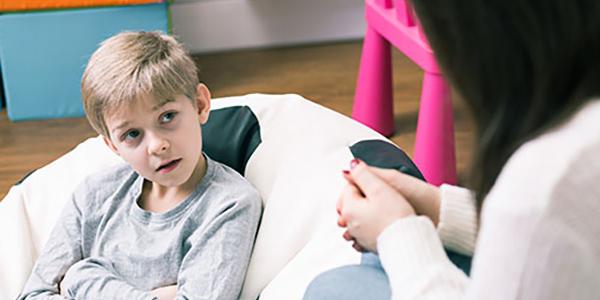
Africa-Press – Namibia. In the field of psychology/psychiatry, school-age children as young as seven years are often diagnosed with ADHD and/or traits of Conduct Disorder, but symptoms may present earlier. American research shows that both these disorders are more prevalent in boys than girls, and that the onset occurs during childhood and adolescence, and is likely to develop into adulthood if left untreated. The disorders co-exist in most cases, but can also be diagnosed individually. However, to meet the criteria for Conduct Disorder, a person must be 18 years old (DSM-5).
Attention deficit hyperactivity disorder (ADHD), formerly known as ADD, is a brain disorder which affects the functioning of the frontal lobe of the brain that is concerned with attention and impulse control. The disorder presents itself as disruptive, and is commonly detected in a classroom environment. A child with this disorder exhibits the following symptoms:
Inattentiveness:
is easily distracted
doesn’t enjoy things that require sitting still
doesn’t follow directions or finish tasks
doesn’t seem to be listening
doesn’t pay attention and makes careless mistakes
forgets about daily activities
has problems organising daily tasks
mostly loses things
tends to daydream
Hyperactivity-impulsiveness:
often fidgets, or bounces when sitting
doesn’t stay seated
has trouble playing quietly
is always moving, such as running or climbing on things. (In teens and adults, this is more often described as restlessness.)
talks excessively
is always “on the go,” as if “driven by a motor”
has trouble waiting for their turn
blurts out answers
interrupts others
If detected earlier, ADHD is treatable through medication, psychotherapy and lifestyle changes such as diet, but requires the holistic and consistent involvement of healthcare professionals as well as teachers and family members in order to see better outcomes.
Conduct Disorder is a severe behavioural and emotional disorder that can present itself as violent and disruptive. Children with this disorder are likely to have long-lasting behavioural problems, don’t respect the rights of others and find it difficult to comply with social norms. As a result, they engage in dysfunctional behaviour such as vandalising property, bunking school or stealing.
Symptoms are typically:
Aggressive behaviour – these are behaviours that threaten or cause physical harm and may include fighting, bullying, being cruel to others or animals, using weapons, and forcing another into sexual activity.
Destructive behaviour – involves intentional destruction of property such as arson (deliberate fire-setting) and vandalism (harming another person’s property).
Deceitful behaviour – this may include repeated lying, shoplifting or breaking into homes or cars in order to steal.
Violation of rules – this involves going against accepted rules of society or engaging in behaviour that is not appropriate for the person’s age. These behaviours may include running away, skipping school, playing pranks or being sexually active at a very young age.
Additionally, these children may be irritable, throw frequent tantrums, engage in early use of substances, and may suffer from low self-esteem. Important to note is that these children have no insight into their behaviour – they are unable to show remorse or guilt for their behaviour as they don’t realise how their behaviour impacts others.
In treating Conduct Disorder, behaviour modification is crucial at an early stage. Otherwise, the children could develop other mental disorders such as antisocial behaviour as an adult, which could lead to detrimental outcomes for their lives, such as incarceration. The treatment involves medication in some instances to counter impulses and other comorbid disorders, psychotherapy and family interventions such as providing a nurturing, supportive, consistent home environment together with love and discipline.
In closing, parenting children with ADHD and Conduct Disorder can be distressing and at times make one feel hopeless. However, don’t give up, and consider the following guide in conjunction to seeking professional help.
keep a clear schedule and routines.
talk to the child in a simple manner, and give clear instructions of what you expect from them, for e.g. “brush your teeth, now get dressed” instead of “get ready for school”.
focus only on your child when you’re talking to them.
set an example of calm, focused behaviour.
be consistent with discipline, and make sure other caregivers follow your methods.
reward good behaviour.
boost the children’s self-esteem; do whatever you have to do as the child may have a low opinion of themselves because of the constant correction of behaviour that is communicated to them.
encourage the child’s special strengths, particularly in sports and out-of-school activities.
learn as much as you can about ADHD and impulsive behaviours.
keep in close contact with your child’s doctor, teachers and therapists.
join support groups to learn from other parents who have been through the same problems.
Justine /Oaes
For More News And Analysis About Namibia Follow Africa-Press





